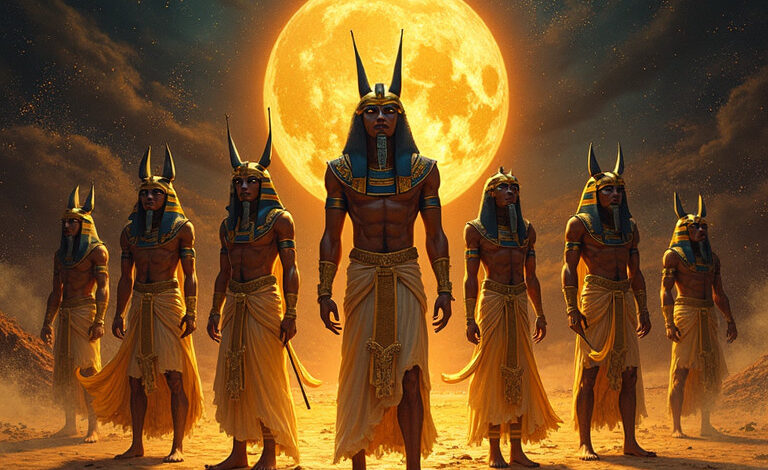
The Egyptian Book of the Dead is one of the most fascinating treasures to come out of ancient Egypt, offering a glimpse into a world that believed death was just the beginning of a greater journey. These sacred texts, written on papyrus scrolls and often placed in tombs, were like a roadmap for the soul—a spiritual guidebook for navigating the afterlife. Though it might sound ominous, the Book of the Dead wasn’t about finality or despair. It was filled with hope, promising the chance for rebirth and eternal life for those who followed its instructions.
Unlike a single, unified book, the Egyptian Book of the Dead is actually a collection of prayers, spells, and rituals that evolved over centuries. Each version could be customized for the person it accompanied, tailored to their journey through the afterlife. For the ancient Egyptians, the afterlife was incredibly real—a place where souls could live on forever, provided they knew the proper paths, words, and rituals to get there. These texts made sure the deceased didn’t wander aimlessly in the dark, confused or lost.
At its heart, the Book of the Dead reflects how deeply the Egyptians respected life and the human soul. Death wasn’t something to be feared; it was a challenge to be overcome, a test to reach eternal peace. But the journey to eternity wasn’t easy. There were obstacles, dangerous creatures, and divine judgments to face. Without the right knowledge, a soul might fail, trapped in limbo forever.
Today, the Book of the Dead continues to fascinate people around the world. It reminds us how the ancient Egyptians saw death as part of a greater cosmic cycle—one that blended the spiritual and the earthly. It’s a testament to their belief in life beyond this world, a world full of challenges, beauty, and hope for something eternal.
The Journey through the Duat: Guidance for Navigating the Underworld

For the ancient Egyptians, death marked the beginning of a perilous voyage through the Duat—the mysterious underworld that lay between this life and eternity. The Duat was no calm stroll through the dark; it was a place filled with strange landscapes, roaring rivers of fire, serpents, demons, and guardians testing the worthiness of every soul. The Book of the Dead acted as a map and survival manual, helping the deceased navigate the trials that awaited them. It wasn’t just about bravery but about knowing the right words and spells to overcome each obstacle.
The Duat was divided into multiple regions, each guarded by powerful beings and riddled with challenges. To make it through, the deceased needed to recite specific spells and prayers to appease or outwit the guardians. If they forgot a spell or answered incorrectly, their journey could come to a swift, unfortunate end. The texts in the Book of the Dead included clear instructions for every step, empowering the soul to keep moving forward despite the dangers.
One of the key parts of the journey involved crossing bodies of water—symbolizing the transition from one state of being to another. The deceased had to summon ferrymen to carry them across, but even that wasn’t straightforward. The ferryman would ask questions to test the soul’s knowledge, demanding proof that the deceased had led a virtuous life. Without the right answers or rituals, the soul might be refused passage, left stranded in the Duat forever.
The Duat wasn’t just a series of tests; it was also where the soul could prove its strength, purity, and readiness for the next phase of existence. With each spell recited and each danger overcome, the deceased moved closer to their ultimate goal—reaching the Hall of Judgment and eventually finding eternal peace in the Field of Reeds.
Judgment by Osiris: The Weighing of the Heart
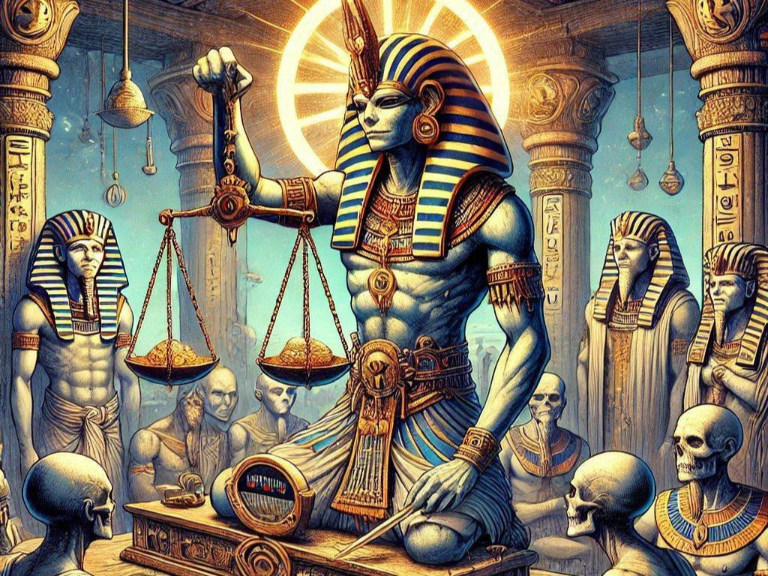
The culmination of the soul’s journey through the Duat brought them to the Hall of Judgment, where the god Osiris presided. This was the ultimate test, where the deceased’s entire life came under scrutiny. In the presence of Osiris, Anubis, Thoth, and a panel of 42 divine judges, the deceased’s heart was weighed against the feather of Ma’at—the goddess of truth, balance, and justice. This moment determined everything: the chance for eternal life or a much darker fate.
The ancient Egyptians believed the heart carried the weight of a person’s deeds, both good and bad. If the heart was light—meaning the person had lived truthfully and justly—it would balance with the feather of Ma’at. A balanced scale signified that the deceased was worthy of eternal peace. Thoth, the scribe of the gods, recorded the result, ensuring it was fair and final.
However, if the heart was heavy with lies, sins, or wrongdoings, the outcome was grim. The terrifying Ammit, known as the “Devourer of Souls,” waited eagerly by the scales. Part lion, part crocodile, and part hippo, Ammit would consume the heavy heart, condemning the deceased to oblivion. This was the worst possible fate for an ancient Egyptian—a complete annihilation of the soul, with no hope for rebirth or eternal life.
The weighing of the heart wasn’t just about punishment. It reinforced the importance of living a life in harmony with Ma’at—one filled with honesty, kindness, and balance. For the Egyptians, life on Earth was preparation for this final judgment. The Book of the Dead gave the deceased the tools to face this moment with confidence, providing spells and declarations of innocence to present before Osiris. If successful, the soul could pass into the next stage of existence with peace and triumph.
Achieving Eternal Life: Instructions for Attaining Eternal Life in the Field of Reeds
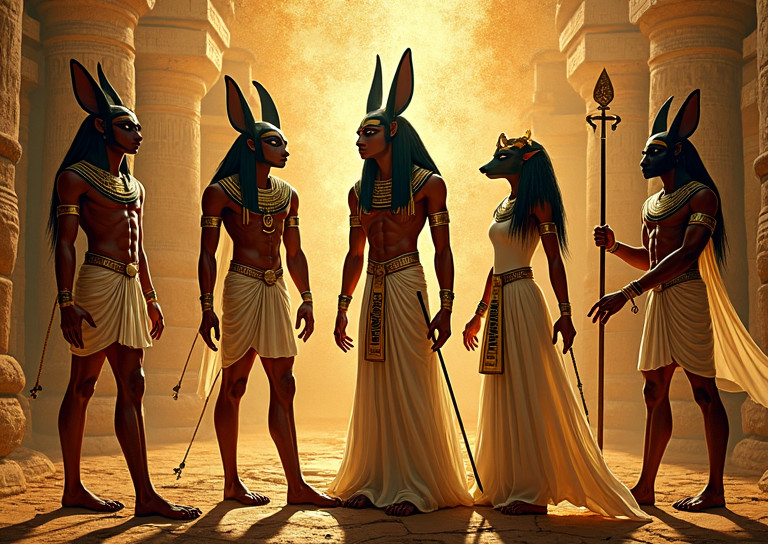
The ultimate reward for successfully navigating the Duat and passing the judgment of Osiris was entry into the Field of Reeds, a place of eternal life and bliss. The Field of Reeds was the ancient Egyptian version of paradise, a perfect mirror of the world they had known in life—but free of hardship, pain, or death. Here, the soul would be reunited with loved ones, surrounded by lush fields, clear rivers, and an abundance of food and comfort.
The Book of the Dead offered precise instructions for reaching this paradise. It wasn’t enough to survive the trials of the Duat; the deceased also had to demonstrate their worthiness and prove they were ready for eternal life. Specific spells and rituals outlined how to avoid pitfalls, gain the approval of gods and guardians, and ensure safe passage into the Field of Reeds.
Once there, the deceased could live a life of peace and fulfillment. They would enjoy the same joys they had experienced on Earth—working in the fields, eating with family, and basking in the beauty of the land—but everything was perfect and eternal. To make sure they were prepared, some tombs even included miniature tools and servants (shabtis) that would help the deceased carry out tasks in the afterlife, leaving them free to enjoy eternity.
Achieving eternal life in the Field of Reeds was the culmination of a long, difficult journey. It represented more than survival; it was about spiritual success and alignment with the greater cosmic order. The Book of the Dead acted as both a guide and a promise—that with knowledge, courage, and purity, the soul could achieve true immortality.
20 Spells from the Egytpian Book of the Dead
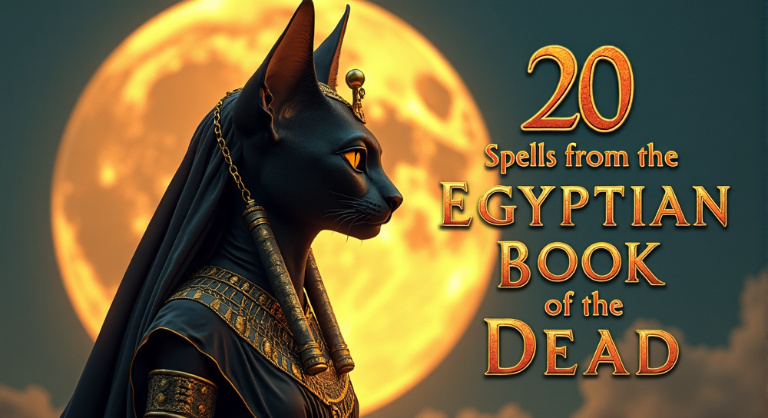
The Egyptian Book of the Dead isn’t just an ancient guide to the afterlife—it’s packed with spells that helped souls navigate the challenges of the underworld, prove their worth, and achieve eternal life. These weren’t spells for wizards and sorcerers; they were tools for the deceased to overcome obstacles, gain favor with gods, and ensure they reached the paradise of the Field of Reeds. Each spell served a purpose, from protecting the body to opening doors in the afterlife and even warding off monsters.
Think of these spells as keys to the afterlife—a way to unlock safe passage through a place as dangerous as it was mystical. Whether it was calming raging rivers, summoning ferrymen, or surviving judgment in the Hall of Osiris, the Book of the Dead gave souls exactly what they needed to make it through. Here are 20 of the most fascinating spells from this ancient text and what they were designed to do.
1. Spell for the Opening of the Mouth
This spell ensured that the deceased could speak, eat, and drink in the afterlife. It symbolically “opened” their mouth so they could communicate with the gods and enjoy eternal feasting.
“By the power of Ptah, I command my lips to part,
My tongue to speak, and my breath to start.
Let the words flow like the Nile’s eternal stream,
That I may speak in Ra’s golden gleam.”
2. Spell for Not Dying Again
A safeguard for the soul, this spell prevented the deceased from experiencing a “second death,” which meant total obliteration. It guaranteed continued existence in the afterlife.
“Oh mighty gods, keep me from the final sleep,
That I may rise, my soul to keep.
My name endures, my heart stays strong,
I will not fade; my soul belongs.”
3. Spell for Crossing the Celestial River
This spell helped the deceased summon a ferryman to guide them across the heavenly waters of the Duat, ensuring they didn’t get stranded on the wrong side.
“Ferryman, ferryman, guide my way,
Carry me where the gods do stay.
I offer words as payment due,
Take me safely, and see me through.”
4. Spell to Repel a Snake
Snakes were common threats in the underworld. This spell acted like a verbal charm to drive them away and protect the soul from venomous bites.
“Serpent, I name you, banished and bound,
With the words of the gods, you turn to ground.
Fangs be dull, your venom cease,
By my command, let there be peace.”
5. Spell for Transformation into a Falcon
This spell allowed the deceased to transform into a falcon, symbolizing freedom, strength, and the ability to soar above the challenges of the underworld.
“Wings of Horus, swift and free,
Lift my spirit, let it be.
I rise above, to skies so wide,
I am the falcon, I am the guide.”
6. Spell to Avoid Being Devoured by Ammit
A crucial spell to escape the clutches of Ammit, the Devourer of Souls. It gave the deceased the right words to prove their heart was pure.
“Ammit, step back, you shall not feast,
For my heart is pure, the gods released.
By Ma’at’s scale, I am light as air,
You’ll find no fault, for truth is there.”
7. Spell for Becoming One with the Sun God, Ra
This spell connected the soul with Ra, the sun god, allowing them to join his journey across the sky and be reborn with the sunrise each day.
“Ra of the morning, Ra of the night,
I join your journey, burning bright.
I rise with the dawn, I set with grace,
In your eternal cycle, I take my place.”
8. Spell for Providing Air in the Afterlife
Breathing was essential for survival in the afterlife. This spell ensured the soul could access the divine breath of life and avoid suffocation.
“Breath of the gods, enter me now,
Fill my lungs, I thee allow.
Like Shu’s winds across the sand,
Let my life continue as you command.”
9. Spell for Opening the Doors of the Afterlife
Many doors and gates blocked the path through the Duat. This spell granted the deceased the words needed to open each one and continue their journey.
“Doors of the Duat, swing open wide,
I speak the words, I step inside.
By Ra’s light and Osiris’ throne,
I claim my passage; I am known.”
10. Spell for Avoiding the Lake of Fire
A dangerous part of the underworld included lakes of fire. This spell helped the deceased navigate around these fiery waters without harm.
“Flames that rise, I do not burn,
For I am pure; I’ve made my turn.
My feet tread light, my path is clear,
I pass untouched, with no fear.”
11. Spell to Become a Lotus Flower
The lotus symbolized rebirth and transformation. This spell allowed the soul to take the form of a lotus, representing purity and eternal renewal.
“Lotus of life, I bloom once more,
In beauty and peace, I open my core.
I rise from the waters, I face the sun,
Reborn forever, I am one.”
12. Spell to Summon the Ferryman
A more specific spell to summon a boatman who could ferry the soul across dangerous waters in the Duat. Without him, the journey might stall.
“Hail to the boatman, hear my plea,
Take me across the sacred sea.
The oar is strong, the water still,
I pass unharmed by my will.”
13. Spell for Giving a Heart to the Deceased
The heart was vital for judgment and life. This spell ensured the heart stayed with the soul and didn’t betray them during the weighing of the heart.
“Heart of mine, do not betray,
Stay true and pure on this day.
Before Osiris, let us be whole,
My heart and I, a single soul.”
14. Spell to Prevent the Body from Decaying
This spell protected the physical body, preserving it so the soul could reunite with it when needed, ensuring completeness in the afterlife.
“Body of flesh, remain intact,
By Anubis’ hand, the pact is packed.
My limbs are firm, my bones hold tight,
I endure in darkness and light.”
15. Spell for Becoming a Bennu Bird
This spell allowed the soul to transform into the Bennu bird, a divine phoenix symbolizing resurrection and immortality.
“Bennu bird, spirit of flame,
I rise renewed, I speak my name.
I am eternal, death cannot claim,
I live forever, forever the same.”
16. Spell to Drive Away Demons
The underworld was filled with demons trying to stop the deceased. This spell gave the soul the power to ward off or defeat these dark entities.
“Demons of shadow, I see you not,
By my voice, your power is forgot.
The light of Ma’at, the strength of my name,
Sends you back to whence you came.”
17. Spell for Passing Through the Seven Gates
The soul had to pass through seven gates, each guarded by beings who asked questions or demanded proof of worthiness. This spell provided the correct answers.
“Gates of the Duat, each guard I greet,
With words of truth, I shall not be beat.
I know the keys, I speak them well,
I pass unchallenged through every spell.”
18. Spell for Eternal Food and Drink
In the afterlife, hunger and thirst could still strike. This spell ensured the deceased had an endless supply of food and drink to sustain them forever.
“Table of the gods, forever spread,
Bring forth food, both wine and bread.
My hunger fades, my thirst is done,
Sustained by Ra, the eternal sun.”
19. Spell to Escape the Net of the Catcher
The “catcher” was a force that tried to trap wandering souls. This spell gave the deceased the means to break free and continue their journey.
“Net of chaos, you cannot hold,
For I am free, as the ancients told.
I slip through your threads, I leave no trace,
I walk unharmed to my destined place.”
20. Spell for Entering the Field of Reeds
Perhaps the most important spell, this one helped the deceased gain entry into the Field of Reeds, the paradise of the afterlife. It gave them the final words to prove their purity and worthiness.
“Field of Reeds, where peace resides,
I enter here with gods as guides.
My heart is pure, my soul is light,
I take my place in eternal delight.”
20 Messages of Guidance from the Book of the Dead
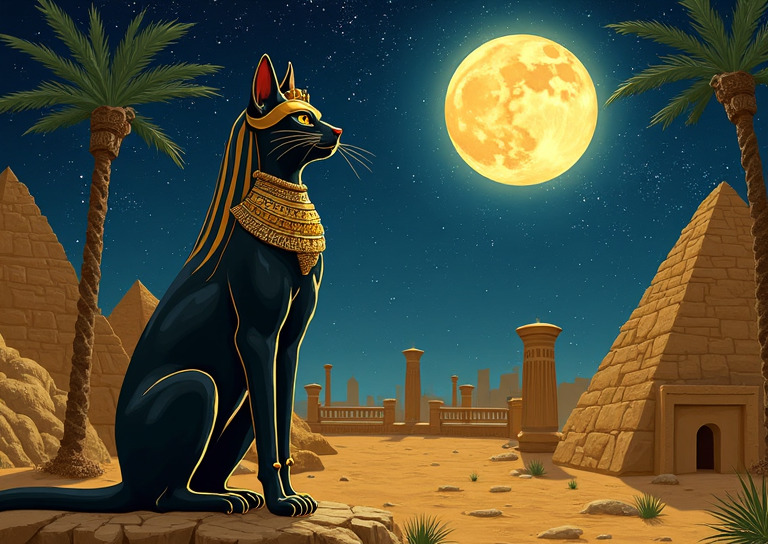
The Book of the Dead transcends being merely a collection of spells; it’s a comprehensive guide for the soul’s voyage into the afterlife. Beyond navigating trials, gates, and celestial guardians, it imparts timeless wisdom to aid the deceased in traversing the Duat—the enigmatic Egyptian underworld—and attaining eternal tranquility. Inscribed on tomb walls and papyri, these messages gently remind us of the values and truths to uphold in both life and death. They are lessons in balance, truth, courage, and transformation—principles that continue to resonate today.
In the face of serpents of chaos, rivers of doubt, or the scales of Ma’at, the Book of the Dead reveals that a soul’s greatest tools are found within. These 20 guiding messages serve not only as directives for the departed but also as insights for the living. They echo through time: live truthfully, act honorably, and embrace the journey, for eternity is just the next step forward.
- “Walk with a Pure Heart”
“Let your heart be as light as Ma’at’s feather, for truth and kindness weigh nothing at all. Carry no lies, hold no grudges, and you shall pass all trials.” - “Do Not Fear the Darkness”
“The Duat is dark, but fear not, for the light of your spirit will guide you. Even in the shadows, you are never alone—Ra’s journey shines within you.” - “Trust in Your Words”
“Your voice holds power. Speak the truth, call the gods by name, and the doors of the afterlife will open before you. Your words are your tools; use them wisely.” - “Honor the Balance of Life”
“As above, so below; as within, so without. Keep balance in all things, for harmony is the path to peace. The scales of Ma’at await you.” - “Fear No Gate, for You Hold the Key”
“Every gate in the Duat has its challenge, but you carry the answers within. Speak with confidence, and the way forward will reveal itself.” - “Nurture Your Inner Light”
“The strength of your spirit is your greatest shield. Protect it, feed it with love, and it will shine brighter than the stars.” - “Respect the Power of Names”
“To know a name is to hold power. Learn the names of gods, spirits, and demons; call them with reverence, and they will serve you or step aside.” - “Embrace the Journey, Not Just the Destination”
“The path through the Duat is not punishment; it is transformation. Each step, each challenge brings you closer to your truest self.” - “Guard Your Heart”
“Your heart will be weighed, and its truth cannot be hidden. Live honorably, so your heart will be your greatest ally, not your downfall.” - “Know That You Are Divine”
“You are born of the gods, a reflection of the eternal. When you walk through the Duat, remember your divinity—it cannot be stripped away.” - “Calm the Waters Before You Cross”
“Rage and chaos will try to block your path. Be still like the Nile at sunrise, and the waters will part before you.” - “Transform When Needed”
“To survive is to adapt. Become the falcon, the lotus, or the Bennu bird—your spirit is limitless, and so too are your forms.” - “Face the Serpent Without Fear”
“Evil may appear as serpents in your path, but they only hold as much power as you give them. Stand firm, and they will slither away.” - “Protect Your Name, for It is Eternal”
“Your name is your essence. Let it be spoken with honor, carved with care, and remembered forever.” - “Remember the Gifts of the Gods”
“The gods provide you with air, food, and strength in this life and the next. Honor them, and their blessings will follow you always.” - “Be Light, Not Heavy, with Regret”
“The burden of regret weighs more than gold. Release what no longer serves you, so your soul may rise unencumbered.” - “Let Truth Be Your Guide”
“The Hall of Two Truths awaits every soul. Speak no falsehoods and hide nothing from yourself, for only truth will set you free.” - “Be Still, and the Ferryman Will Come”
“Patience is a virtue on the waters of the Duat. Call calmly, and the ferryman will hear your need and come to your side.” - “Know That Death is Not the End”
“The body may rest, but the soul endures. You are not gone—you are only journeying to where peace and eternity await.” - “Rejoice in the Field of Reeds”
“When you reach paradise, do not forget to celebrate. The harvest is endless, the waters are pure, and the sun shines forever. You have earned this peace.”
Final Musings
The Egyptian Book of the Dead remains a powerful testament to the beliefs and spiritual aspirations of an ancient civilization. It reflects the Egyptians’ unwavering faith in life after death and their commitment to preparing for it with care and reverence. Though thousands of years have passed, these texts continue to captivate and inspire, reminding us that humanity has always searched for meaning beyond the grave.
Whether viewed as myth, guide, or sacred scripture, the Book of the Dead offers timeless lessons about living a life of truth, balance, and purpose. It invites us to reflect on our own journeys and the legacies we hope to leave behind—reminding us that even in the face of death, there is the promise of something greater waiting on the other side.




